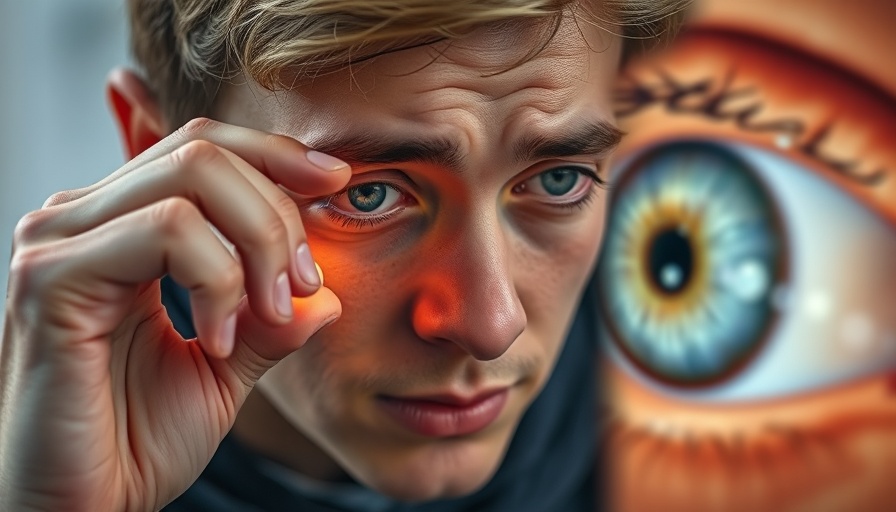
Understanding Eye Floaters: What Are They Really?
If you've ever experienced strange drifting spots in your vision, you may have noticed them during bright days or while staring at a light screen. You’re not alone; many people see these spots, known as eye floaters, and often dismiss them as merely annoying. But what’s really happening in your eye?
In 'The Dangers of Eye Floaters: When to Worry,' the discussion delves into the complexities of eye floaters, highlighting not just their common nature, but also the serious implications they can have, prompting us to explore these insights further.
Eye floaters primarily consist of tiny clumps and strands of collagen proteins suspended in the gel-like vitreous humor at the back of your eye. As we age, changes in this gel can lead to an increase in floaters, much like the changes we see in the collagen within our skin. While for most, floaters are a normal part of aging, they can also indicate potential eye health issues, especially for those with risk factors such as nearsightedness or prior eye surgeries.
When to Worry: Signs of Serious Eye Conditions
Despite their commonality, it’s critical to understand when floaters shift from benign to a cause for concern. One critical condition to be aware of is posterior vitreous detachment (PVD), where the gel inside the eye begins to peel away from the retina. While this typically does not pose a major risk, it can create large floaters and—more alarmingly—may tug on the retina, leading to tears or detachments.
Symptoms to watch for include a sudden increase in floaters, flashes of light in your peripheral vision, or dark shadows transitioning within your line of sight. These symptoms can signal a retinal tear or detachment, which requires immediate attention from your eye care professional.
Reducing Your Risk: Tips for Eye Health
Maintaining eye health is essential, and while some risk factors like age are out of our control, there are proactive steps we can take. Managing underlying health conditions—especially diabetes—is crucial, as high blood sugar can lead to bleeding inside the eye, another cause of floaters that many may overlook, especially since it typically doesn’t come with the symptom of pain.
Additionally, regular eye check-ups can help detect changes early on, particularly for those with a history of vision problems. Staying hydrated, using protective eyewear, and implementing a balanced diet rich in vitamins A, C, and E can also fortify our eye health.
The Emotional Impact of Vision Changes
Dealing with changes in vision can be unsettling, and it’s natural to feel anxious about your eye health. This anxiety can escalate when faced with potential sight-threatening conditions. Understanding your body and what is happening within your eyes can offer some peace of mind. Remember, having floaters doesn’t automatically mean a serious problem; they are frequently harmless once assessed by a professional.
Connecting with others who have experienced similar issues can also alleviate stress. Online communities and support groups provide emotional support and helpful information for managing eye health concerns.
Looking Ahead: Expert Insights on New Treatments
In case you are part of the increasing number of individuals with disruptive floaters, researchers and eye care specialists are actively exploring treatments beyond the current management options. Surgical procedures to remove floaters are being evaluated, and some new techniques might show promise in both effectiveness and safety.
A video from eye care expert Dr. Allen highlights various methods currently available for managing floaters, as well as upcoming treatments in research. Interested readers may find this insight helpful as they continue their journey toward better eye health.
Take Action for Your Eye Health Today
While eye floaters can often be benign, staying informed and vigilant is crucial. If you're experiencing new floaters or any concerning symptoms, make an appointment with your eye doctor for a professional evaluation. Remember, taking steps to protect your vision today can lead to a healthier future.
 Add Row
Add Row  Add
Add 




Write A Comment